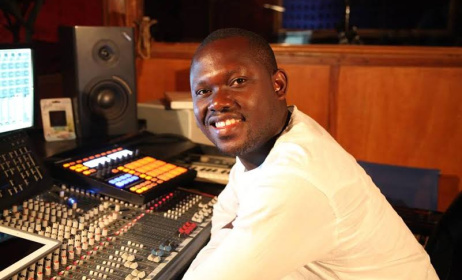Opportunities for musicians in Togo
Togo has a vast and diverse pool of talent. Music, however, seems to be the forgotten sector. There are very few initiatives to support musicians, even though regional TV channels and radio stations introduce new artists every day. Those who last are not only talented but have taken advantage of opportunities available in the country.
 (Photo) : King Mensah
(Photo) : King Mensah
The Fonds d’Aide à la Culture, established in 2013, is a government initiative focused on supporting artists and their projects in order to make them more competitive in local and international markets.
The fund covers five cultural areas, one of which is music. Some artists only make use of it to launch their careers.
The Bureau Togolais des Droits d’Auteurs (BUTODRA), a public institution established under the law No 91-92 of 10 June 1991, protects and manages the interests of authors. and pertains to the collection of royalties from TV and radio stations, bars and other sources on behalf of the authors.
This money, a derisory amount, is not necessarily paid to the beneficiaries. BUTODRA does not have the means to carry out checks and few artists know about the existence of this statutory provision. Fortunately, there are numerous private initiatives offering training, artist promotion, and production.
La Belle-mélodie is one of the most prominent music schools in the capital. Created in 1992, the school offers instrumental and vocal training. Eligibility requirements are basic music skills and the ability to play an instrument. The school offers fellowships to students taking the piano, guitar, trumpet, flute or accordion.
Clémentine Ayefouni, soloist of opera, a former student of the Belle Mélodie music school said: "We first make music because we have a gift. Then, it is necessary to go through a school or a vocal coach to polish up. We enable talent and we eventually enjoy our work."
When asked whether she makes a living from her music, Clémentine replies: "I have a full-time job. I am also an opera singer, a genre Togolese are not familiar with. However, tickets to my concerts are snapped up like hotcakes. If my passion is a revenue stream, it's for the best."
King Mensah, the king of Togolese music, introduced a music competition allowing him to spot new talents, coach them and allow them to benefit from his production house. The project started three years ago but is currently on hold.
228 T Factor organized by All That Production is currently the most popular talent competition. The TV show offers an opportunity to emerging artists. The winners receive support from the production house as well as promotion support.
The competition covers the entire country and has the support of several partners including the Télévision nationale and the telecommunications network Togocel.
There are also singing competitions organized by hotel groups. For example, last year, the Balkan hotel introduced the "Balkan Open Mic" competition. The rules differ slightly from karaoke, where participants receive prizes for their performances.
The Premium Esplanade establishment followed closely with a concept aimed at Togolese songs. Although these initiatives are applauded, they remain essentially advertising and mercantile.
Concerts and other events organized by big event communications agencies are more lucrative for Togolese artists. They offer a wider audience and remuneration for each performance. Unfortunately, these events are infrequent in Togo.
Telecommunications companies like Moov and Togocel are to this day the primary music event organizers. These two companies host events during the summer school holidays where local and international artists perform.
The Togolese music scene is not fully established to allow artists to make a living. There are many production houses but they are undermined by amateurism and a lack of vision. Another hurdle is that the Togolese public is not a financially viable market. Concert tickets are sold quickly, not albums.
The numerous pictures followed by hashtags posted on social media platforms do not reflect the harsh reality of many artists who are forced to wander from bar to bar trying to sell their albums to the consumer.























Commentaires
s'identifier or register to post comments